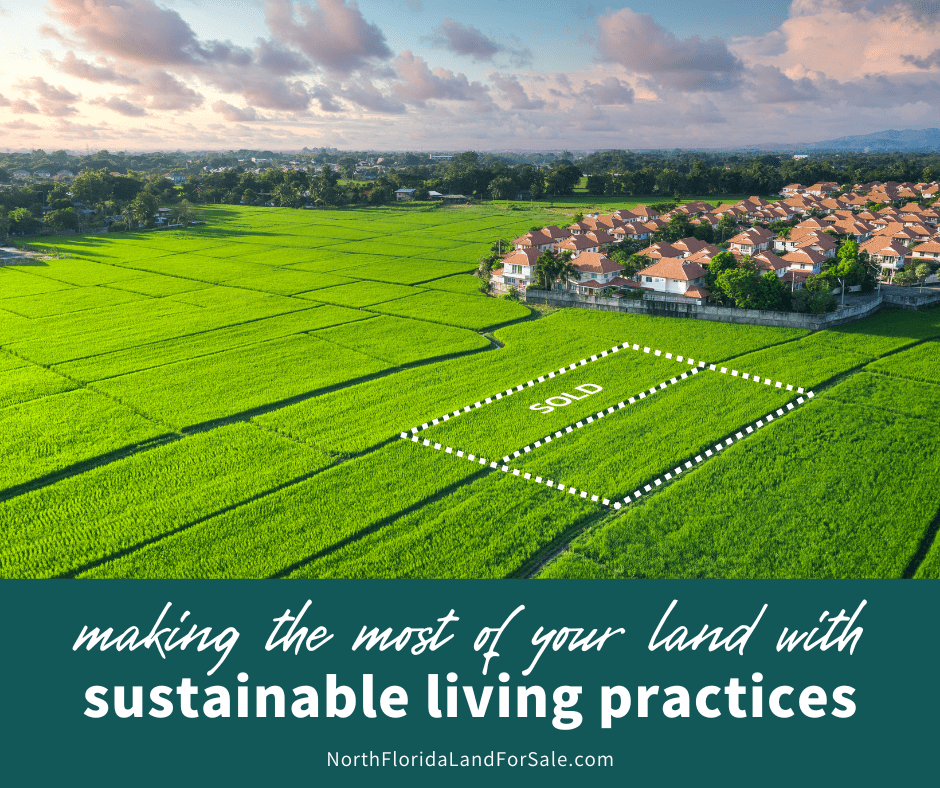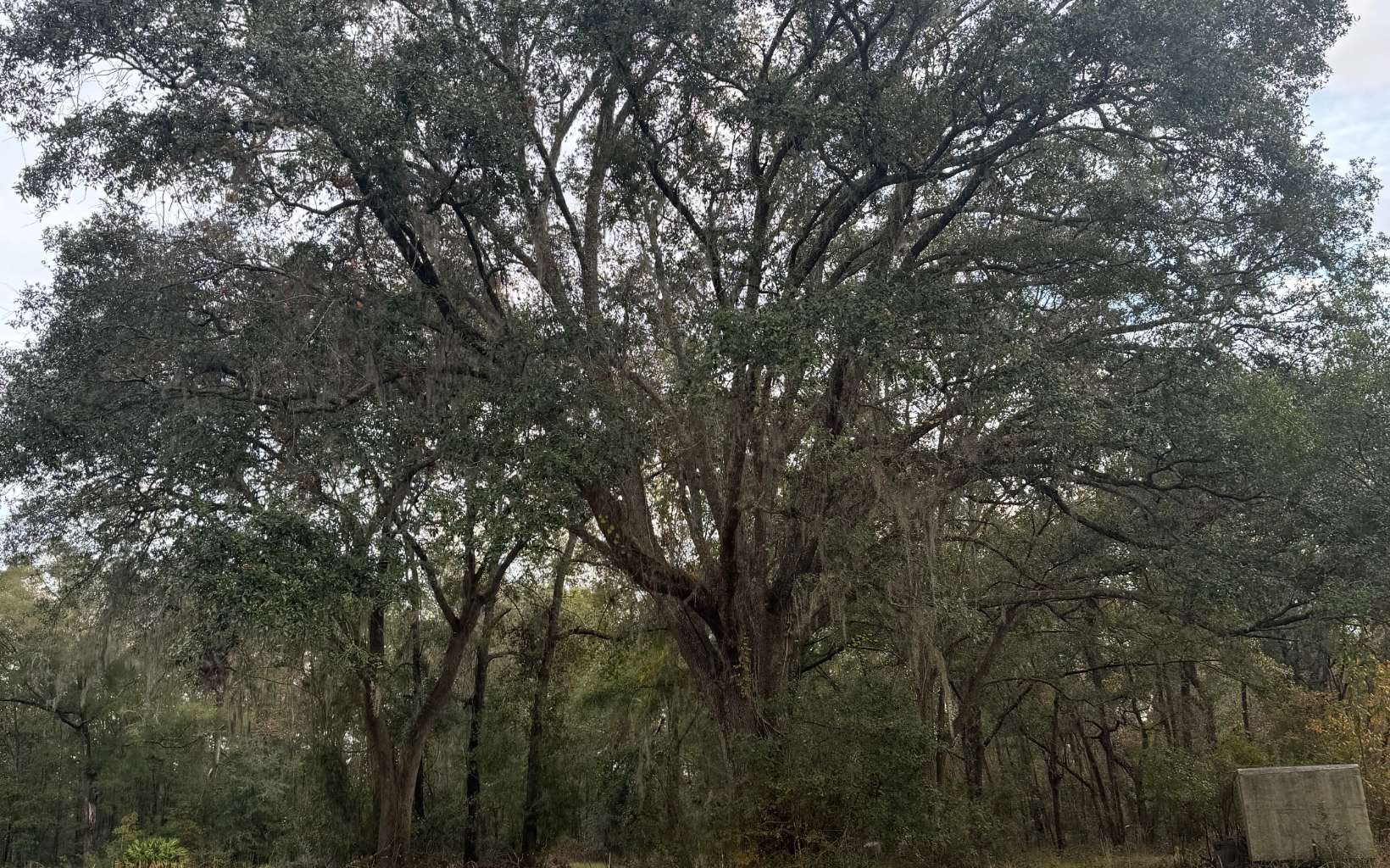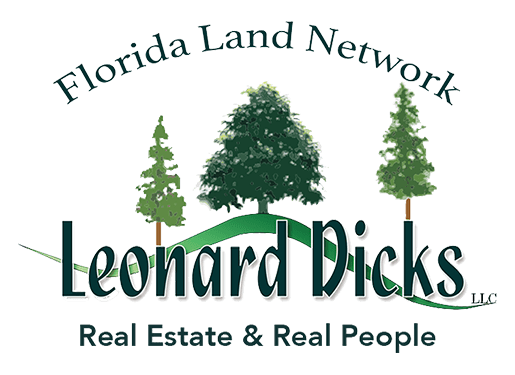
North Florida offers a unique opportunity for landowners to embrace sustainable living, thanks to its diverse ecosystems and abundant natural resources. Whether you own a small plot or vast acreage, adopting sustainable practices can enhance your land’s value, contribute to environmental conservation, and provide a fulfilling lifestyle. This guide will explore practical ways to make the most of your land in North Florida while adhering to principles of sustainability.
Sustainable Living in North Florida: How to Make the Most of Your Land
Embracing sustainable living on your North Florida land involves understanding and implementing practices that benefit the environment, the local community, and your well-being. This guide explains the following:
- Renewable energy sources
- Organic farming and gardening
- Water conservation and management
- Wildlife habitat preservation
- Eco-friendly construction and landscaping
Here’s a closer look at each.
Renewable Energy Sources
Utilizing renewable energy sources is a cornerstone of sustainable living. In North Florida, solar energy is a viable option due to the region’s ample sunlight. Installing solar panels can reduce your reliance on non-renewable energy sources, lower electricity bills, and decrease your carbon footprint. Wind turbines are another alternative, especially in areas with consistent wind patterns. By harnessing the power of the sun and wind, you can create a more sustainable and self-sufficient homestead.
Related: Information on buying farms, land, and ranches in North Florida
Organic Farming and Gardening
Organic farming and gardening emphasize natural methods of cultivation that avoid synthetic chemicals, promoting soil health and biodiversity. In North Florida, you can grow a variety of crops using organic practices, enhancing your land’s productivity and nutritional value. Composting, crop rotation, and natural pest control are key strategies that enrich the soil, yield healthier produce, and maintain ecological balance.
Related: What if you buy land that isn’t connected to utilities?
Water Conservation and Management
Water is a precious resource, and sustainable living requires careful management and conservation. Implementing rainwater harvesting systems can capture and store rainwater for irrigation, reducing your dependence on external water sources. Additionally, designing landscapes with native plants and xeriscaping can minimize water usage while maintaining an attractive and functional outdoor space.
Wildlife Habitat Preservation
North Florida’s land is home to diverse wildlife, and sustainable living includes efforts to preserve and enhance their habitats. Maintaining natural areas, planting native species, and creating wildlife corridors can support local ecosystems. By fostering a habitat-friendly environment, you contribute to biodiversity conservation and enjoy the benefits of coexisting with nature.
Eco-Friendly Construction and Landscaping
When building or renovating structures on your land, consider eco-friendly construction methods and materials that minimize environmental impact. Green building practices, such as using sustainable materials, optimizing energy efficiency, and reducing waste, contribute to a healthier living environment. Similarly, sustainable landscaping practices, like using native plants and minimizing lawn areas, can enhance your property’s aesthetics and ecological value.
FAQ About Sustainable Living in North Florida
Check out these commonly asked questions about sustainable living in North Florida. If you don’t see your question here, please call our office and we’ll find you the answers you need.
How Can I Start Transitioning to Solar Energy?
Begin by assessing your property’s solar potential and consulting with a renewable energy expert to determine the best system for your needs. Incentives and rebates may be available to help offset the initial costs.
What Are Some Effective Organic Pest Control Methods?
Natural pest control methods include introducing beneficial insects, using organic repellents, and employing physical barriers. These strategies can protect your crops without harming the environment.
Related: How seller financing works in Florida
How Can I Create a Wildlife-Friendly Habitat on My Land?
Preserve natural areas, plant native vegetation, and provide water sources to attract and support wildlife. Avoid using harmful chemicals and consider building features like birdhouses or bat boxes.
What Should I Consider When Choosing Eco-Friendly Building Materials?
Look for materials that are sustainably sourced, have low environmental impact, and promote indoor air quality. Local, recycled, or renewable materials are excellent choices for green building.
Can I Implement Sustainable Practices on a Small Plot of Land?
Absolutely! Even on a small scale, you can adopt sustainable practices like composting, rainwater harvesting, and organic gardening. Every effort contributes to a larger impact on environmental conservation.
Embracing sustainable living in North Florida allows you to connect with the land, support the environment, and enjoy a healthier, more self-sufficient lifestyle. By implementing these practices, you can make the most of your land, contribute to the community’s well-being, and leave a positive legacy for future generations.
Are You Buying a Home or Land for Sale in Lake City?
If you’re moving to Lake City, we can help you find the perfect place to live. Call us at 386-243-0124 to tell us what you want from your home and we will begin searching right away.
Check these out:
- Paved road frontage for sale in Columbia County
- Non-deed-restricted land for sale in Columbia County
- Wooded oak tree land for sale in Columbia County
- Land-for-land home combo in Lake City
- Waterfront residential in Lake City
- Waterfront land in Columbia County
- Bank-owned homes and foreclosure in Columbia County
- Short sales in Columbia County



